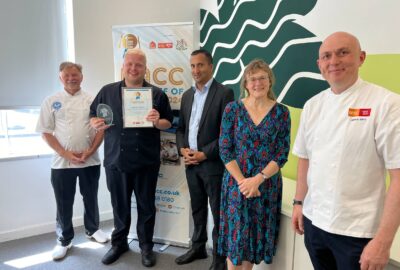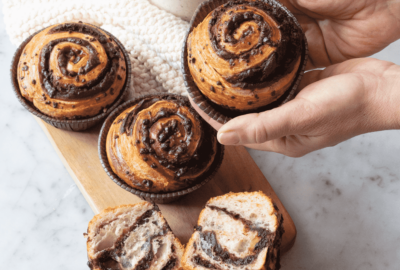It’s important for children to start the day with a healthy breakfast so they are able to concentrate and focus at school.
The Magic Breakfast charity works with 480 schools ensuring that over 48,000 children have breakfast. In addition to providing food, the charity’s team offers nutrition and allergen guidance to partner schools and advises on post breakfast activities such as book clubs and exercise sessions.
Magic Breakfast’s breakfast is designed to give children energy, protein, vitamins and minerals and is low in salt, sugar and fat complying with government school food standards. These ‘magic’ breakfasts consist of cereal, porridge, bagels, beans, milk and fruit juices.
How do schools work with Magic Breakfast?
Schools can apply to become a partner school, which means they will receive expert support and food aid to reach children at risk
of hunger. Emily Frezza, School Partner Team Leader says “Schools can submit an expression of interest form via our website. For a school
in England to qualify at least 35% of pupils should be recorded as eligible for pupil premium.” In Scotland, other criteria apply.
Once funding becomes available, a School Partner from the charity will arrange a visit (social distancing regulations permitting). Emily says “School partners work with the school to decide on the best model of food provision, then they are able to place a food order. Food is delivered direct to the schools either weekly or fortnightly.”
Traditionally, partner schools hold breakfast clubs for children before the start of school. “During the pandemic we had to adapt our model and thanks to our partners, were able to reach children at home via fortnightly take-home breakfast packs or delivering directly to children at home,” says Emily.
Case Study
Although Willow Primary School in Tottenham, London, ran a paid-for breakfast club, it decided to work with Magic Breakfast “to ensure that every child at risk of hunger would have access to and be encouraged to take up a healthy breakfast in school,” says Umarani Nathan, Parental Engagement Lead. “In conjunction with the charity, we launched Wake Up Magic Breakfast Club free of charge alongside our existing club for families with younger siblings to come in and have a family breakfast. This created a warm and inviting space for children. Prior to the pandemic, around 60 children attended the Breakfast Club every day. We also fed breakfast to a further 240 children each day in their classrooms.”
As a result of the pandemic, when the school resumed last September, the breakfast club was stopped, “but instead we now provide bagels every day to around 450 children. These along with some fruit are a highlight of the children’s morning. Families have been given Magic Breakfast food parcels at home and are grateful to receive the support this amazing charity gives,” says Umarani.
How To Start A Breakfast Club
One of the most effective ways to ensure children receive a healthy breakfast is to run a breakfast club. Here is some advice from Magic Breakfast on how to start one:
- Choose which kind of provision you would like to run – a breakfast club, classroom breakfast, grab and go, or a combination of all three
- Think about logistics such as staffing and any equipment you would need
- Run a stigma check. Make sure any child who is at risk of hunger can access breakfast without stigma or barrier. Ideally, they would not even need to ask for something to eat
- Let your school community know about your new breakfast provision – celebrate what your school can offer with a launch plan including posters, family breakfast and themed days
- Watch the children enjoy the new breakfast service and see how much it benefits them, as well as the whole school community
Advice on What to Serve Children for Breakfast
Looking for inspiration and ideas on what to provide children for breakfast? Helena Gibson-Moore from the British Nutrition Foundation has the following healthy breakfast suggestions:
- Wholegrain toast with peanut butter, and sliced banana
- High fibre, un-sweetened breakfast cereal with semi-skimmed milk topped with fresh/dried fruit
- Baked beans on wholemeal toast with grilled tomatoes
- Poached or scrambled eggs on wholegrain English muffin with mushrooms or spinach
- Porridge topped with pumpkin seeds and chopped fruit
- Remember to provide a drink too – good choices are water, lower fat milk, fruit juice/fruit smoothies (max 150ml serving/day)
For more information visit https://www.magicbreakfast.com/ and https://www.nutrition.org.uk/


